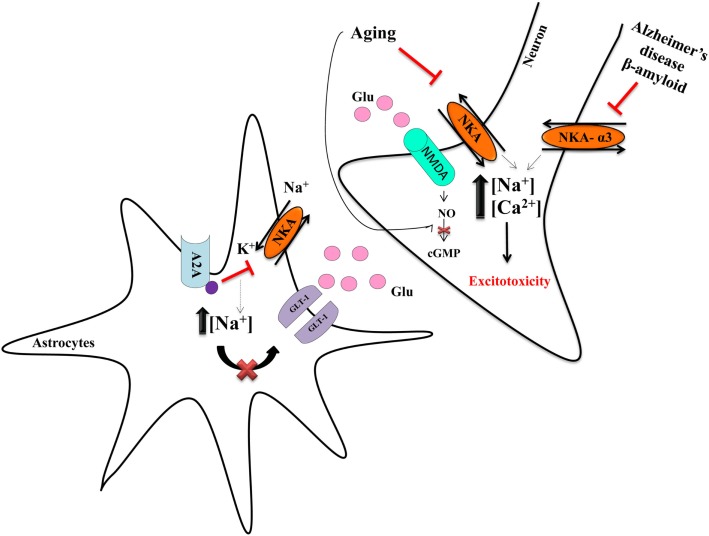Figure 1.
Neurodegeneration and NKA. Astrocytes are important to regulate the release of glutamate and its provision to neurons. NKA has an important role in the control of the glutamate transporter-1 (GLT-1) in astrocytes, because the concentration of Na+ modulates the uptake of glutamate (55). The adenosine A2A receptor decreases NKA activity, leading to increased intracellular Na+ concentration, which impairs glutamate uptake, resulting in more glutamate availability in the synaptic cleft (55). Such excess of glutamate overactivates the NMDA receptor, leading to increase intracellular Na+ and Ca2+, in turn driving excitotoxicity (55). The decrease of NKA is mostly deleterious and amylospheroids, which are composed of β-amyloid oligomers and α-synuclein, interact with α3-NKA, thereby impairing its activity. Such data indicate NKA to have an important role in neurodegeneration and neurodegenerative diseases (52, 53). Our group showed that aging is also an important factor that decreases NKA activity (36, 38).

